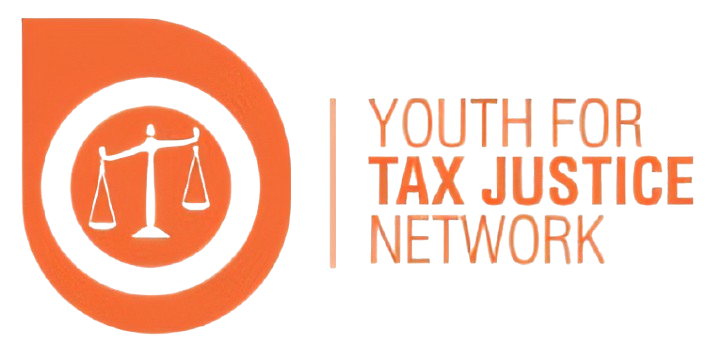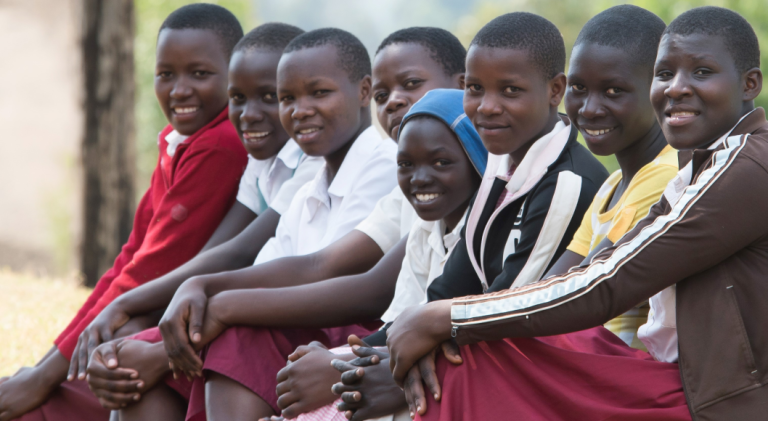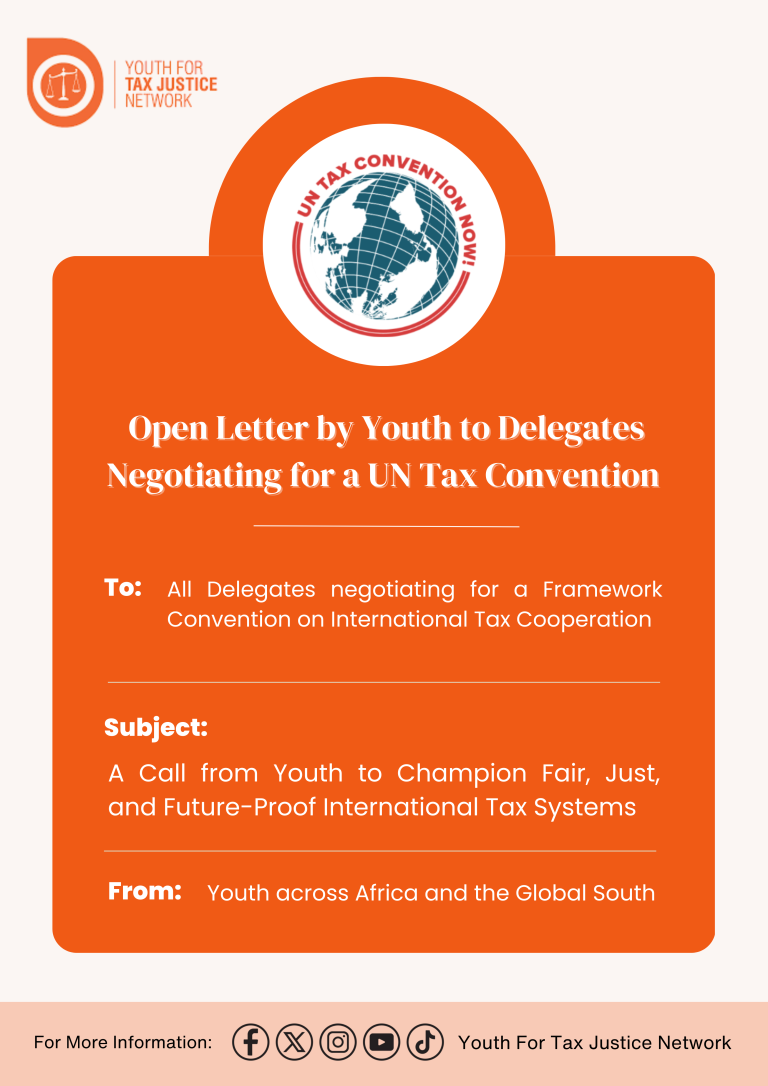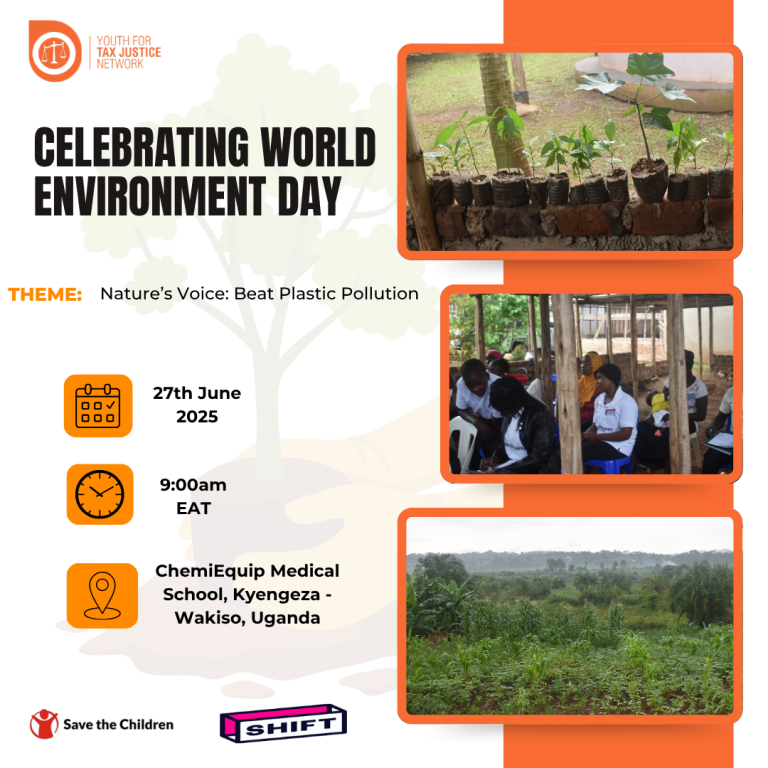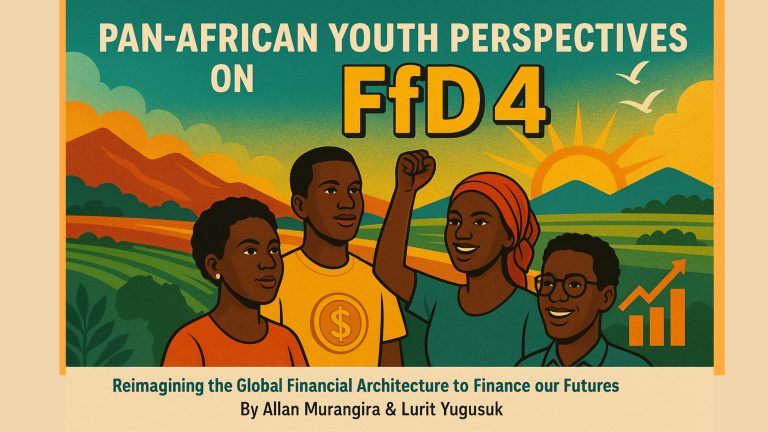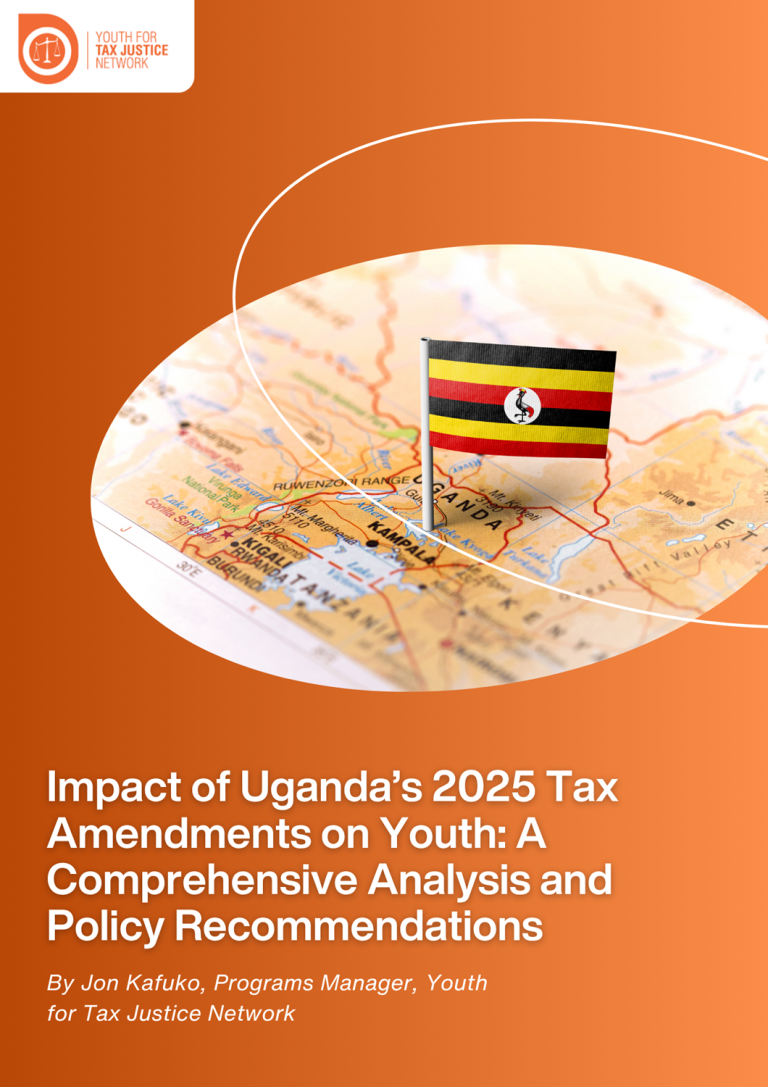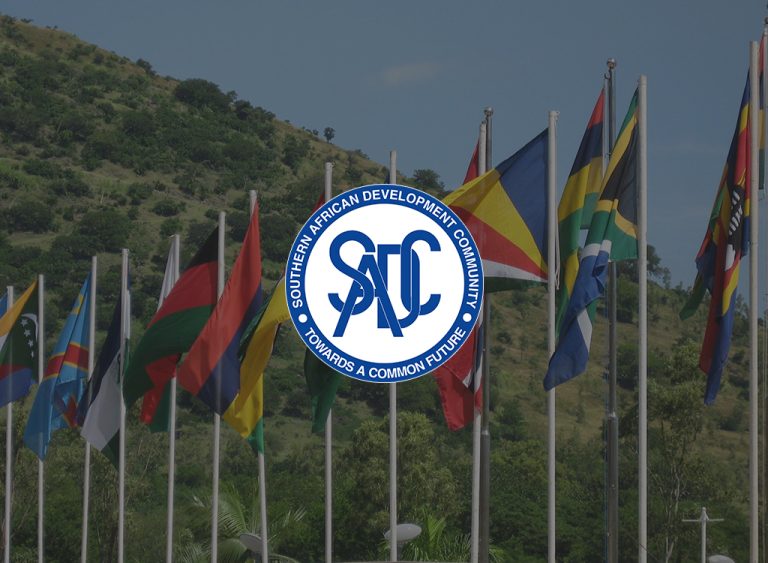As the world hurtles towards the 4th International Conference on Financing for Development in Seville, Spain next month, we are writing this blog is for the 1.8 billion young people under 30 who continue to inherit both the promises and failures of today’s financial systems. It’s a call to action for youth to rise, engage, demand, and drive transformative change and co-creators of a new financing paradigm that truly serves the people and the planet. This piece is also a call to action for governments, multi-lateral institutions and civil society organizations to rise to the challenge of meaningful youth inclusion.
By Allan M. Murangira & Lurit Yugusuk
Ask the average young person what ‘financing for development’ means, and you’re likely to be met with blank stares or vague responses, if any. Why? For far too long, financial policymaking has been the exclusive domain of economists, bureaucrats, and finance ministers, disconnected from the lived realities that young people face as they navigate unemployment, climate anxiety, gender injustices, and shrinking space for civic engagement. And yet, this is the generation that has both witnessed unprecedented global wealth creation and borne the brunt of deepening inequality.
The irony? The decisions made under the Financing for Development (FfD) agenda directly shape the futures young people are trying to build, determining whether governments can invest in quality education, create decent jobs, or respond to the climate crisis.
Let’s unpack … what is Financing for Development (FfD) and what has been the missing link over the years?
At its core, financing for development is about how the world mobilizes, allocates, and governs its financial resources to attain sustainable development. Think of it as the engine room powering the Sustainable Development Goals (SDGs). It addresses fundamental questions such as where the money will come from to end poverty and inequality, who is responsible for financing climate adaptation and resilience, and how global trade and tax rules should be shaped to work for all.
FfD is organized around five thematic pillars. Domestic Resource Mobilization, which focuses extensively on taxes, public finance and anti-corruption. International Public Finance, which includes aid, concessional financing and loans. Private Sector Engagement, which involves investment, public-private partnerships, and corporate accountability. Trade and Technology, covering innovation, global trade regimes, and technology transfer. Debt Sustainability and Systemic Issues, addressing debt justice and global monetary governance.
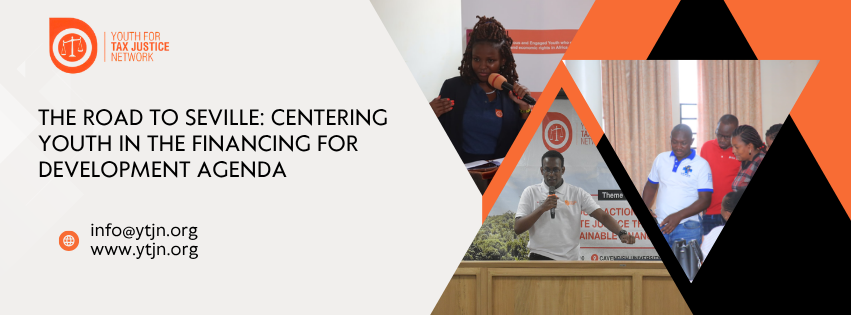
From 30th June – 3rd July 2025, the global community will gather in Seville, Spain for the Fourth International Conference on Financing for Development (FfD4). This high-stakes moment brings together world leaders, finance ministers, central banks, multilateral institutions, and civil society to assess progress and chart a new path for global financing cooperation. This year’s conference is especially critical. The world faces overlapping crises including climate breakdown, debt distress, inequality, and the erosion of public trust in global governance. FfD4 is a defining moment in the global conversations about how resources are mobilized, allocated, and governed to shape a future that is not only fairer and greener, but truly inclusive. It is also a crucial opportunity to call for the meaningful participation and representation of youth in these crucial discussions.
It offers a chance to overhaul outdated financial systems and build new financing models that are inclusive, equitable, and sustainable.
Yet one critical piece has consistently been missing: young people.
Despite the UN’s acknowledgment of the ‘important role of young people in sustainable development, the FfD agenda has historically sidelined youth voices. Youth-led or youth-focused sessions have made up less than 5% of official programming at past conferences. When included, youth participation has often been symbolic and limited to side events with little to no connection to outcome documents or intergovernmental negotiations. Intergenerational equity is frequently mentioned but rarely integrated as a core financing principle. This is not just exclusion, it’s a missed opportunity. The world cannot achieve the SDGs without unlocking the financing potential of its youngest and most dynamic demographic.
Why should FfD matter to young people and how can FfD4 center youth priorities more meaningfully?
Young people are among the most affected by global financing failures. Take for instance youth unemployment rate in Uganda which hovered around 13.3% in 2020, while underemployment and informal work affects millions more. Student debt has surpassed $1.7 trillion in the U.S alone, severely limiting the future economic agency of young people. In the Sahel, where 64% of the population is under 25, the climate crisis threatens livelihoods, food security, and even the survival of young people.
These are not isolated issues. Globally, young people continue to grapple with underfunded public services, regressive tax systems, and unsustainable debt burdens, and the decisions made at FfD4 will directly shape our future. From affordable healthcare, education, job creation and decent work, to climate adaptation, disaster resilience, and public investments in green infrastructure, young people need a seat at the table to influence financing priorities that directly impact our lives.
We recognize that youth are the most interconnected generation in human history. Today’s youth are climate activists in Nairobi, fintech innovators in Lagos, and policy interns in Brussels. As digital natives, we grasp the intricacies of data justice, crypto taxation, and platform accountability. This global and digital fluency gives us a unique intergenerational edge to both critique and co-create the financing systems of tomorrow. Moreover, youth represent a powerful political force. Across Africa and Europe, over 60% of the population is under the age of 30. In countries like Nigeria and Kenya, youth comprise the largest voting blocs, holding transformative potential to demand progressive tax reforms, climate finance accountability, and debt justice.
Importantly, youth are not just demanding change and inclusion, we are already building it. From community savings groups in Mbale (Uganda), to blockchain-based crowdfunding platforms in Tunisia, to youth-run cooperatives in Malawi, young people are actively reimagining finance from the ground up.
To truly center youth priorities, governments and multilateral institutions must go beyond tokenism and commit to meaningful inclusion. This means institutionalizing youth participation in FfD follow-up processes, financing youth-led accountability initiatives such as shadow budgets and citizen audits, and creating dedicated youth funding windows in national budgets and climate finance mechanisms. It also means including youth-relevant indicators in FfD monitoring frameworks and supporting youth involvement in efforts such as asset recovery and anti-corruption. The Financing for Development agenda must also be shaped with the youth in mind.
From Presence to Power: How young people can lead at FfD4
Young people must move from being observers and passive participants to powerful influencers and co-creators of a better future at the Fourth International Conference on Financing for Development (FfD4). This means that youth should not only be proactive in this process, but also bold, organized and strategic in how we show up and engage. We encourage;
- Direct engagement with the Outcome Document as actively and as early as possible. The outcome document is not just another conference paper. It is the political backbone of global financing frameworks and commitments, as well as post FfD4 follow-up mechanisms. Young people must scrutinize its content, submit concrete recommendations, and monitor the language use on issues such as intergenerational equity, youth-related funding, and social protection. Other critical points to look out for is advocacy for youth-specific targets in areas like public finance, climate adaptation, and tax justice.
- Proactive participation in Side Events that will be hosted at the FfD4. Over the years, side events have proven to be great spaces of influence and social mobilization. Youth-led organizations like the Youth for Tax Justice Network (YTJN) are already co-hosting powerful events, ranging from policy dialogues and training sessions to high-level policy dialogues. These forums offer platform to build their capacity, showcase innovations, and amplify youth driven solutions that deserve to be heard in any negotiation room.
- Young people to play a part in holding their respective governments accountable. FfD4 may be a global process, but change starts at the national level. Young people must track national financing commitments, interrogate budget allocations, monitor transparency in climate and development finance, and insist on youth inclusion in tax and fiscal policy consultations.
- Building Power across Borders. To drive real transformation, young people must forge strategic alliances beyond their borders. African and European youth, for example, have shared stakes in issues like climate reparations, global tax justice, digital economy regulation, and fairer trade. Cross-border solidarity can elevate youth priorities onto global policy agendas.
This is our moment. FfD4 is not just about financing, it is about power. Who has it, how it’s used, and who it serves. If young people remain silent, the future will be financed without us and potentially against us. But if we show up, organized, informed, and bold, then we can reshape the future to reflect our priorities and lived realities. Whether you’re a student leader, community organizer, digital innovator, or policy trailblazer, FfD4 is your space to lead.
We invite young people to join us in ensuring that the Financing for Development agenda delivers real outcomes for youth; grounded in justice, equity, and intergenerational solidarity.
